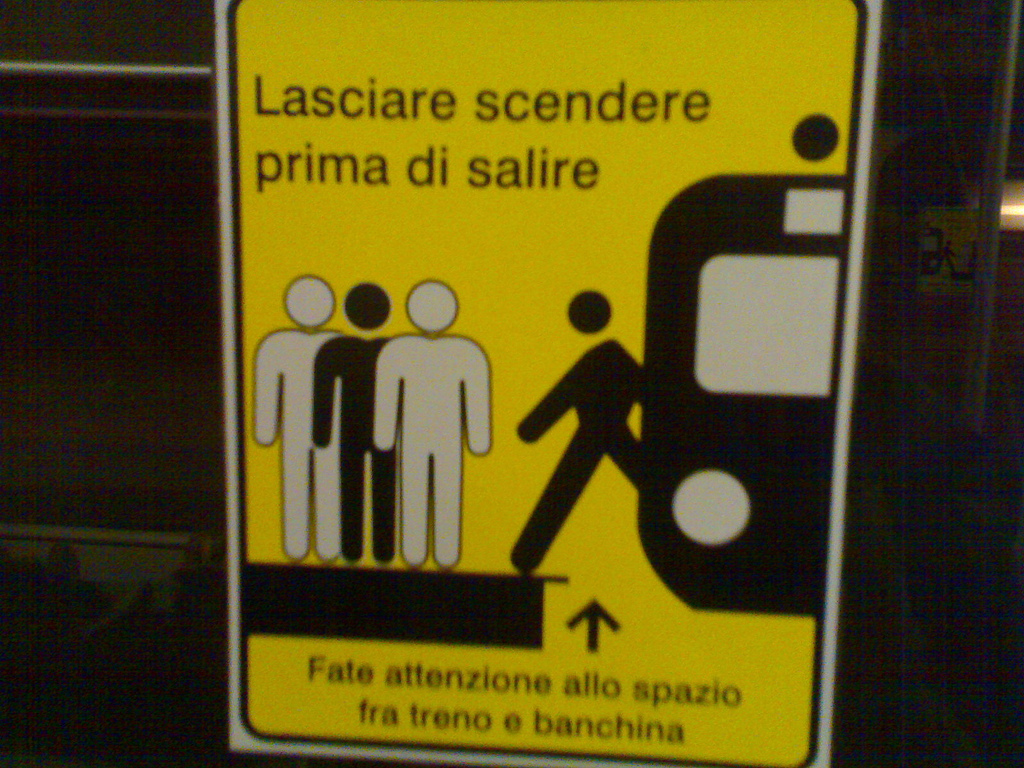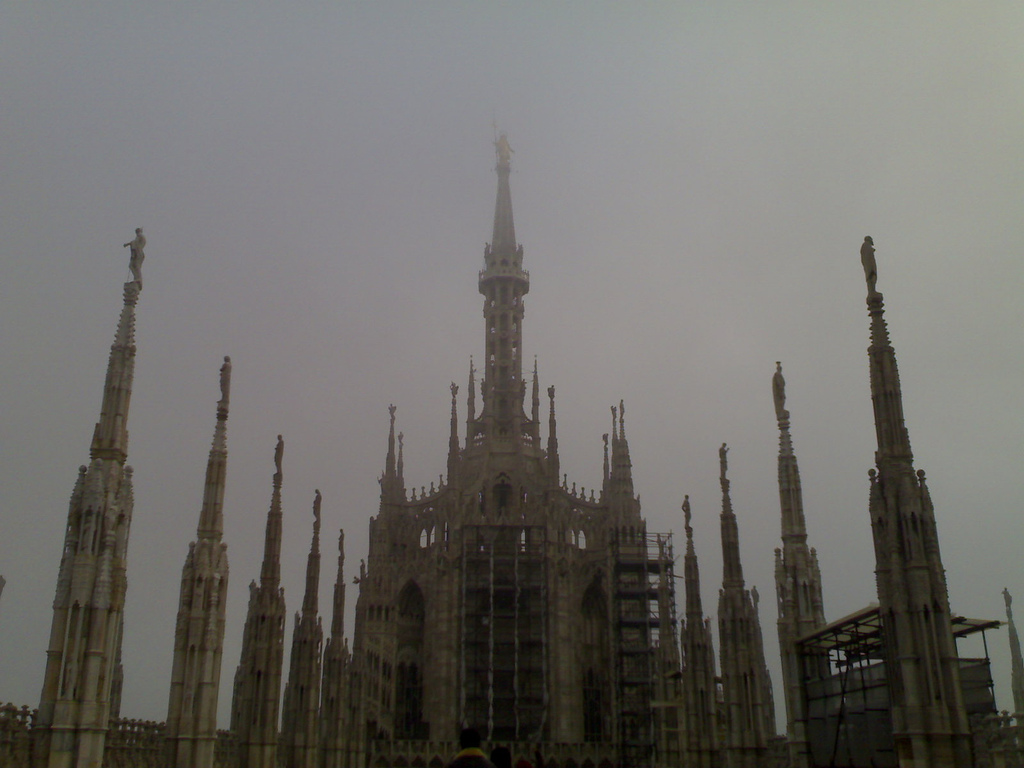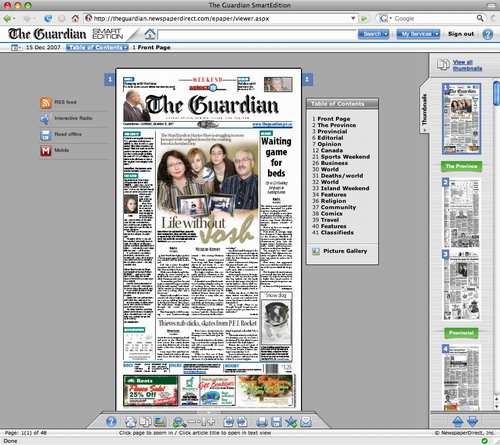Toronto-area Catholic school board bans Pullman fantasy trilogy reports the CBC:
At a board meeting Tuesday evening, the trustees of the Halton District Catholic School Board voted to ban the title [The Golden Compass] as well as the remaining two books in atheist author Philip Pullman’s His Dark Materials trilogy: The Subtle Knife and The Amber Spyglass.
It’s remarkable to me that such things can still go on, especially given that, although Catholic in name, the Halton District Catholic School Board is completely funded by the public. Kind of makes you wish we had some sort of over-arching law that protected our fundamental freedoms from book banners like this. Oh, wait, we do.
On the newsstands in Europe, the Middle East and Africa, but not, alas, in North America, you can now find Intelligent Life, a magazine from the The Economist. It’s website — MoreIntelligentLife.com is well designed and a good read.
A year after it closed in its first incarnation it looks like the Town and Country Restaurant in Charlottetown has closed in its second: there are ‘For Rent’ and ‘For Sale’ signs on the building, and it’s closed for business.

The asking price is $380,000; here’s the real estate listing.
The CBC is reporting that singer-songwriter Dan Fogelberg has died at age 56.
They call him an “easy rock” singer, but I don’t think that pejorative term does justice to his style — Fogelberg wrote the kind of songs that don’t really get written any more, “folk-pop story songs” of the sort that his peers Ian Thomas and Harry Chapin were also famous for. Perhaps Bruce Guthro is the closest modern analog (Fogelberg’s hit Same Old Lang Syne, minus the synth, could very well be a Guthro song; he should cover it).
Radio doesn’t have time for 5 minute long songs any more, and so artists like Dan Fogelberg no longer have a popular niche. His music may sound over-produced and be written off as “easy listening” these days, but his hits are important parts of the 1970s and 1980s American songbook, and I think they’ll stand the test of time.
The beer was empty and our tongues were tired,
And running out of things to say.
She gave a kiss to me as I got out,
And I watched her drive away.
Just for a moment I was back at school,
And felt that old familiar pain.
And as I turned to make my way back home,
The snow turned into rain.
I seemed to have missed the fact that Casa Mia is now open at 8:00 a.m. (thank goodness for The Buzz). Now I can get my morning coffee right after dropping Oliver at school, without an awkward “stop at the office for a half hour” delay.
Spotted on the Metro in Genoa: Fate attenzione allo spazio fra treno e banchina means “pay attention to the space between train and the platform.” In London they simply say “Mind the Gap,” which, by compare, seems a miracle of brevity.

Regular readers will recall that I run cold on religion, alternatively passively dismissing all things related to it and actively making fun of those that don’t. And I’m not in line to change my take. But visiting the Duomo in Milan — the impressive cathedral at the heart of the city — I did have cause to ponder, if nothing else, the enormity of the collective delusion.

To construct a building so grand, so impregnated with mythology, so much a part of the city that surrounds it, over the hundreds of years it took to create speaks to something substantial.
The Guardian, Prince Edward Island’s newspaper of record, has traditionally had a web presence that’s lagged about 4 years behind current design and usability trends. This has improved a lot in recent months: they’ve got RSS feeds and Nigel Armstrong and user-generated content.
And now they’re about to release a snazzy new digital edition of the print paper.
Their last try at this involved installing software on your machine and was more “hobbled PDF” than “leveraging web technologies” (although still nice to have access to when you’re in Kathmandu).
The new version, branded Smart Edition, has much to recommend it:

There’s no extra software to install — it’s a completely in-browser application. Among other nice features you’ll find:
- Integrated RSS feeds — links in the RSS call up pages in the Smart Edition.
- Text-to-Speech — get any story read to you (with a not-bad-sounding robot voice).
- Photo Index — a clickable thumbnail index of all the images in the print edition.
- Full-text search — searches everything, including the text of classified word-ads.
- Alerts — email alerts for keywords (they call this “Monitors”).
- Front Page by Email — you can sign up to receive the front page graphic by email as soon as it is published.
- Offline Viewing — which does require installation of Windows-only application.
- Mobile Edition — a mobile-optimized version of the paper is available (it works great on an iPod Touch).
- Social Software Links — built in article links to Digg, del.icio.us, and built-in blog posting for Blogger, Wordpress and Livejournal.
Of course The Guardian didn’t built all this out themselves — they’re using NewspaperDirect technology. But kudos to them for realizing that it might be worthwhile to experiment with a modern feature-rich approach to web delivery.
The Smart Edition is currently in testing and isn’t being officially marketed yet (although you’ll find a “Today’s Smart Edition” link on the side in the left-hand sidebar under the weather).
We arrived home from Italy yesterday to find Brian Mulroney testifying on Parliament Hill. Once I turned on the television I couldn’t turn it off: it was compelling television, both because of Mulroney’s skilled rhetoric and because of the questioning (and sometimes goading) he received from the members.
The most amazing thing about Mulroney’s testimony is that by the end of it he had me thinking that it was the most normal thing in the world to have $225,000 in cash squirreled away in safe deposit boxes, cash that doesn’t get income tax paid on it until the heat is on five years later.
It’s only on sober second thought that the craziness of it all bubbles to the top.
If you have an opportunity to watch the video, I recommend it: you’ll learn a lot about how to win friends and influence people.

 I am
I am